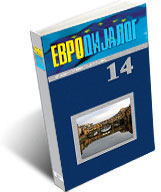ПРЕДИЗВИЦИТЕ НА ПОСТКОМУНИСТИЧКИТЕ ДРЖАВИ ВО ЦЕНТРАЛНА И ИСТОЧНА ЕВРОПА: ПРАШАЊЕТО НА УНГАРСКОТО МАЛЦИНСТВО ВО СЛОВАЧКА И РОМАНИЈА
QUESTION OF HUNGARIAN MINORITY IN POSTCOMMUNIST SLOVAKIA AND ROMANIA IN THE LIGHT OF EURO-ATLANTIC INTEGRATION: COMPARATIVE ANALYSIS
Author(s): Milan Milenković, Miloš JanickiSubject(s): Politics / Political Sciences
Published by: Центар за регионални истражувања и соработка Студиорум
Keywords: Slovakia; Romania; Hungary; nationalism; post-communist; transformation; minority rights; regimes; comparative analysis
Summary/Abstract: Slovakia and Romania are typical examples of post-communistic states that experienced difficulties and challenges of nationalism in the period of transformation. New regimes try to cope with challenges, among which minority issue was the most difficult one. In this paper the authors, through a comparative analysis of Slovakia, Romania and Hungary, are trying to present an answer to the question, if nationalism can successfully deal with minority rights and what was the impact of the foreign factor – political and economic integration of these states in institutions such as CoE, EU and NATO, in the process of improving position of the minorities.
Journal: ЕВРОДИЈАЛОГ Списание за европски прашања
- Issue Year: 2011
- Issue No: 14
- Page Range: 113-132
- Page Count: 20
- Language: Macedonian

